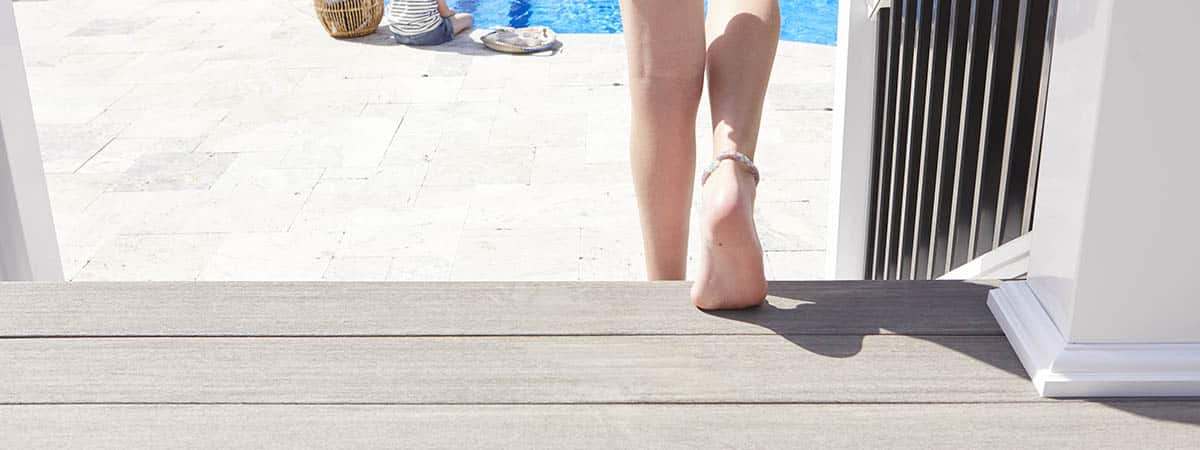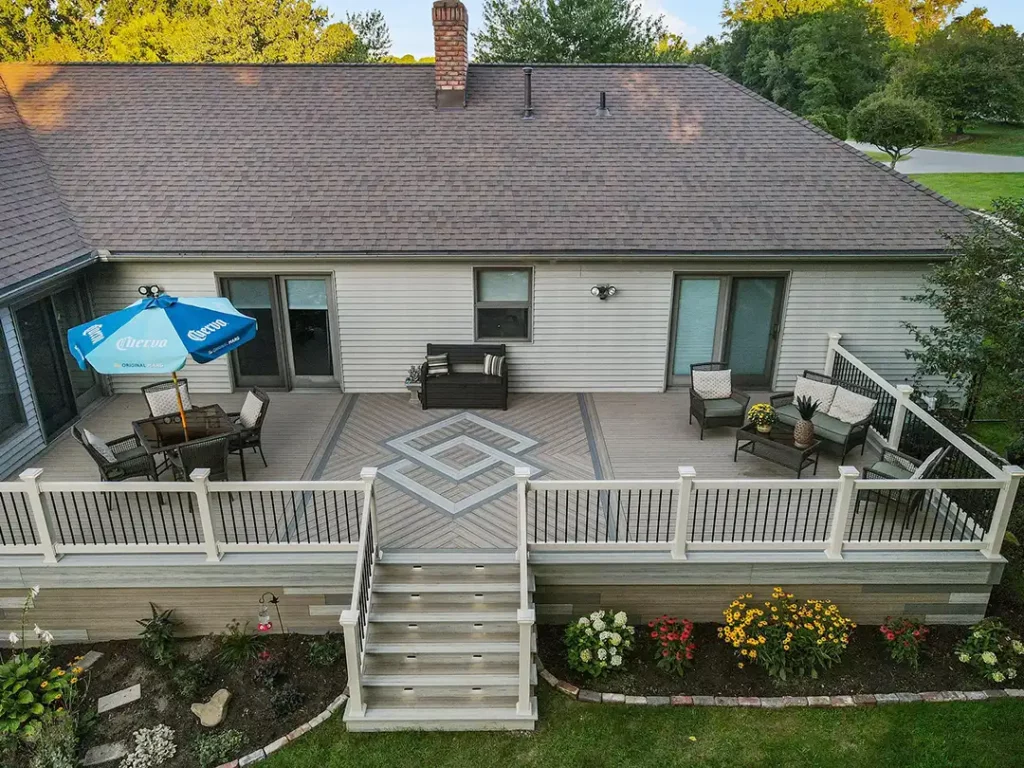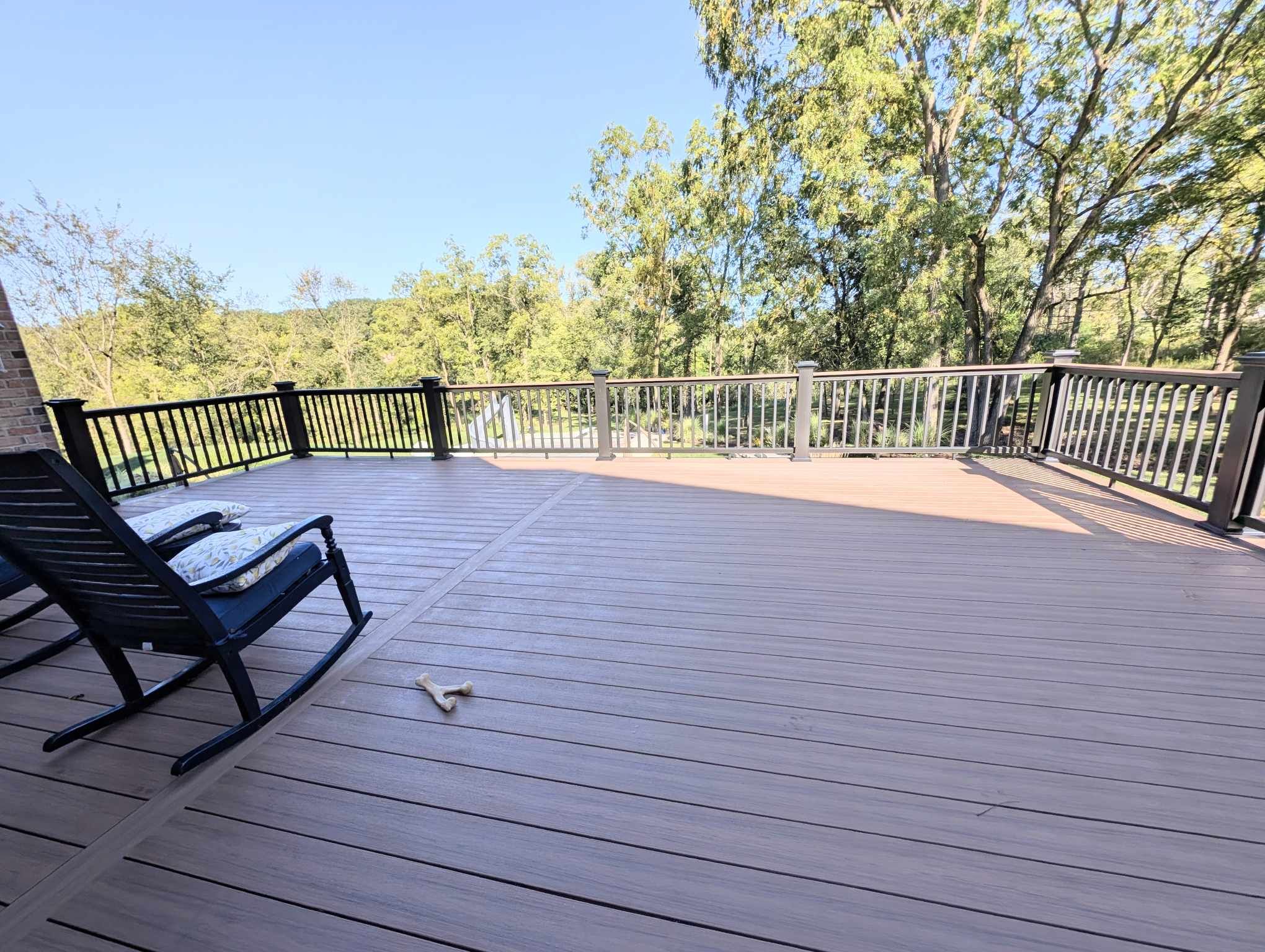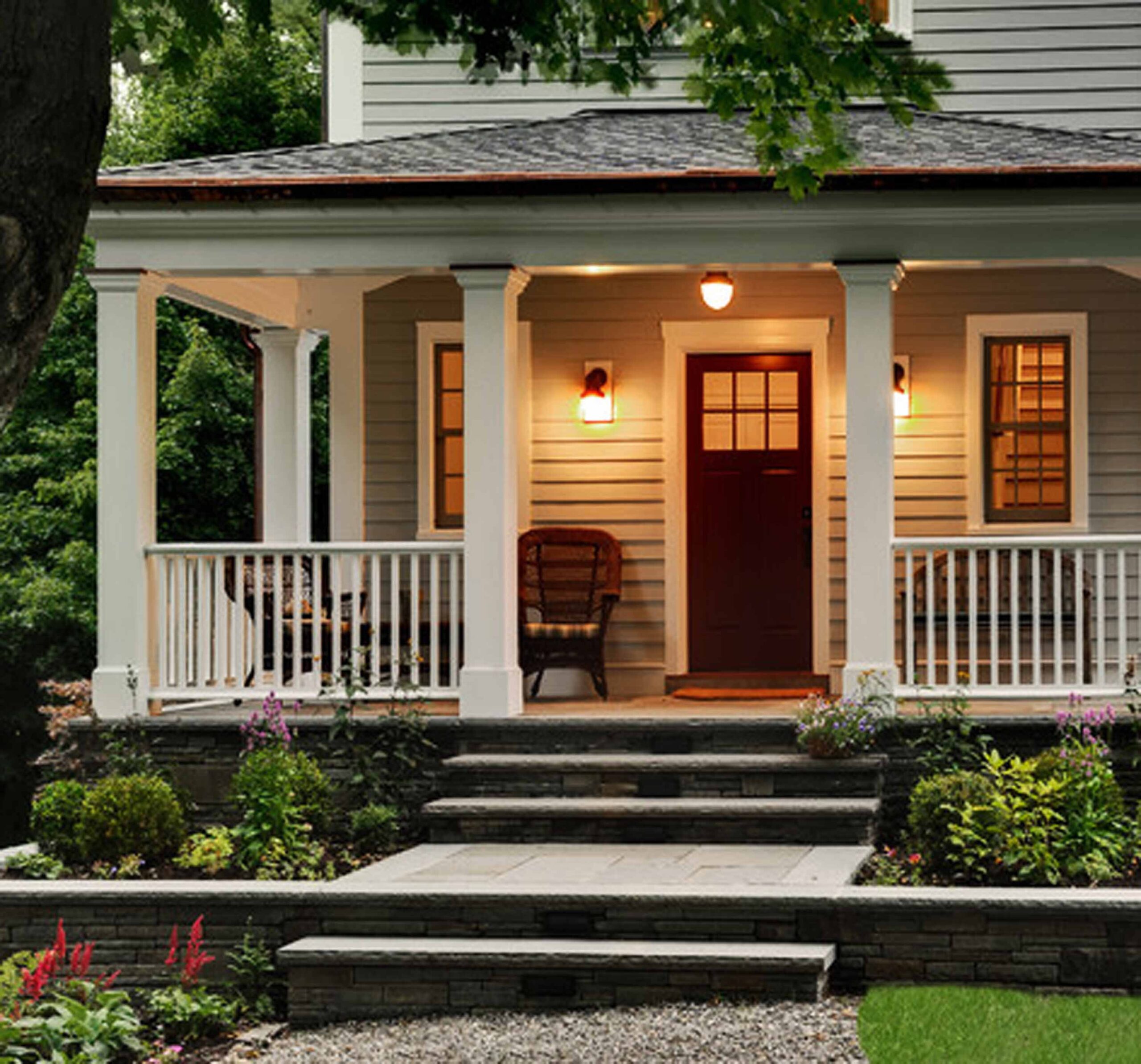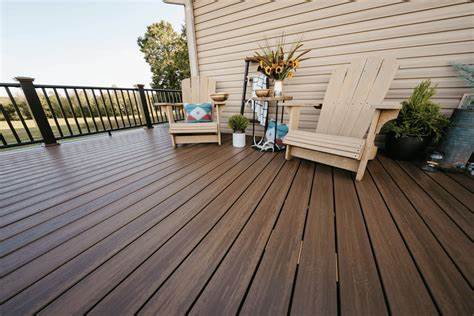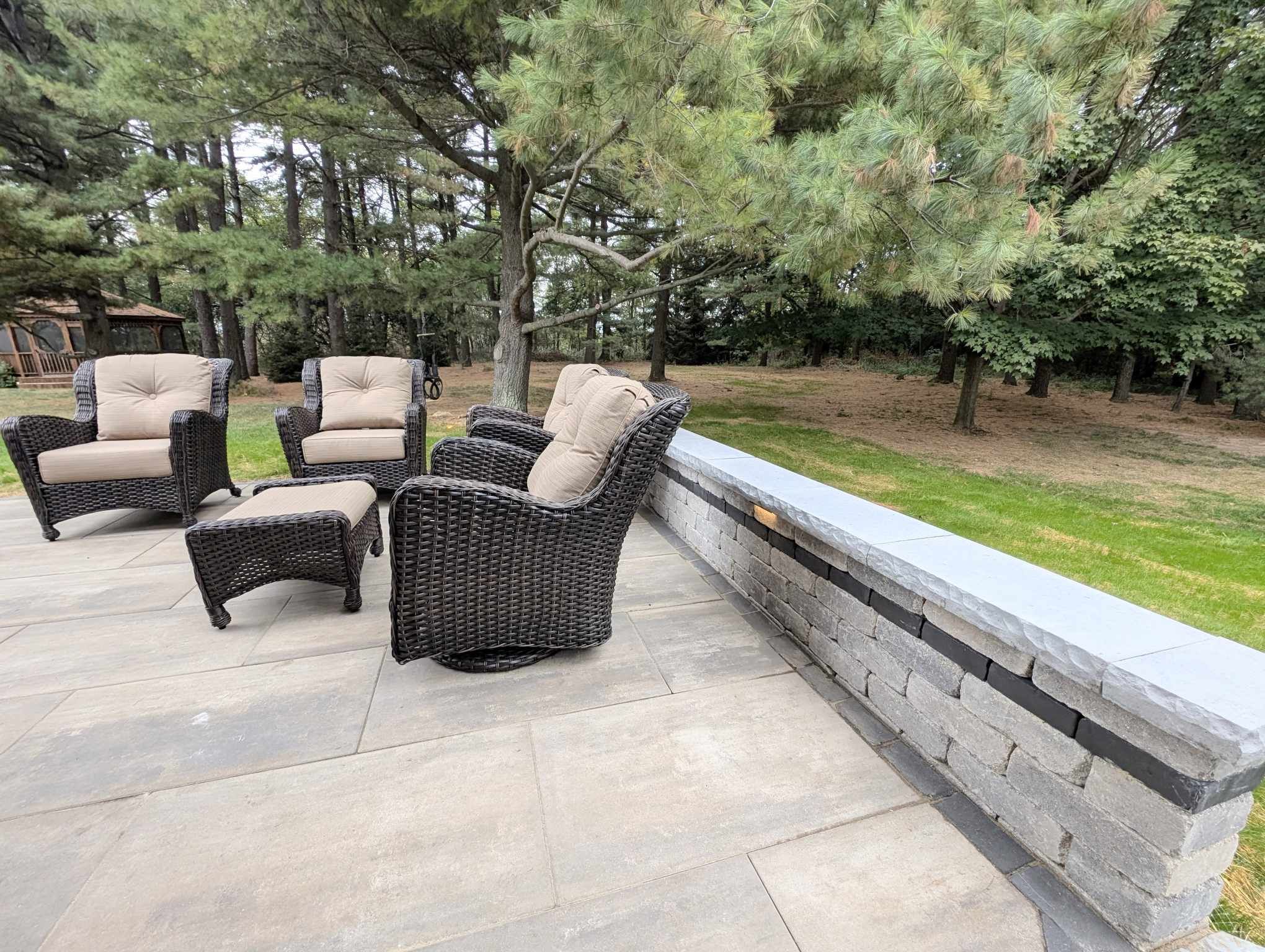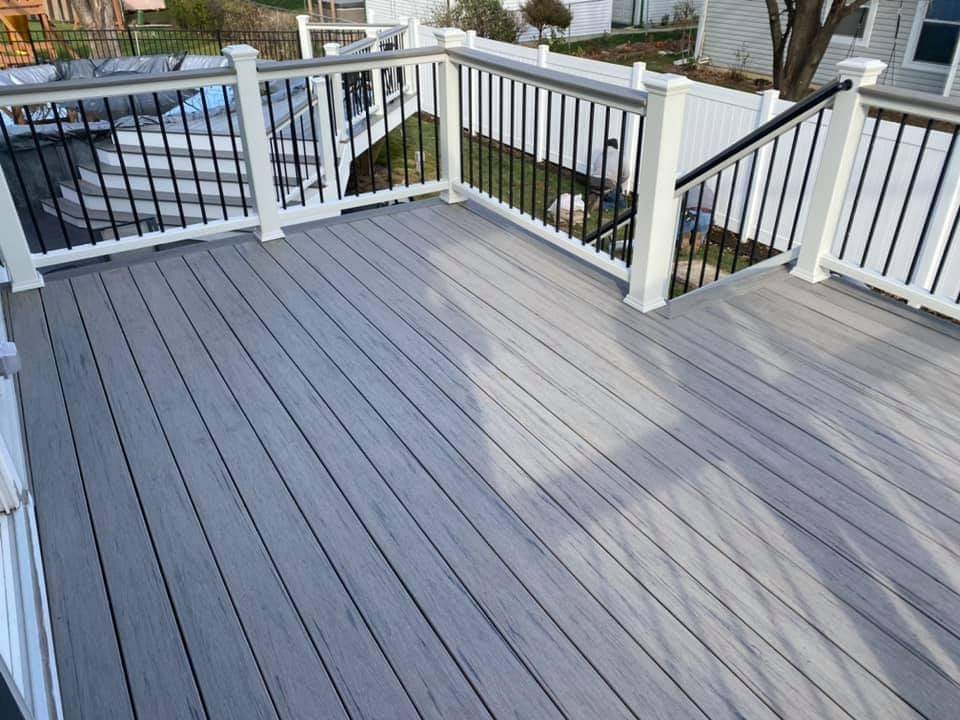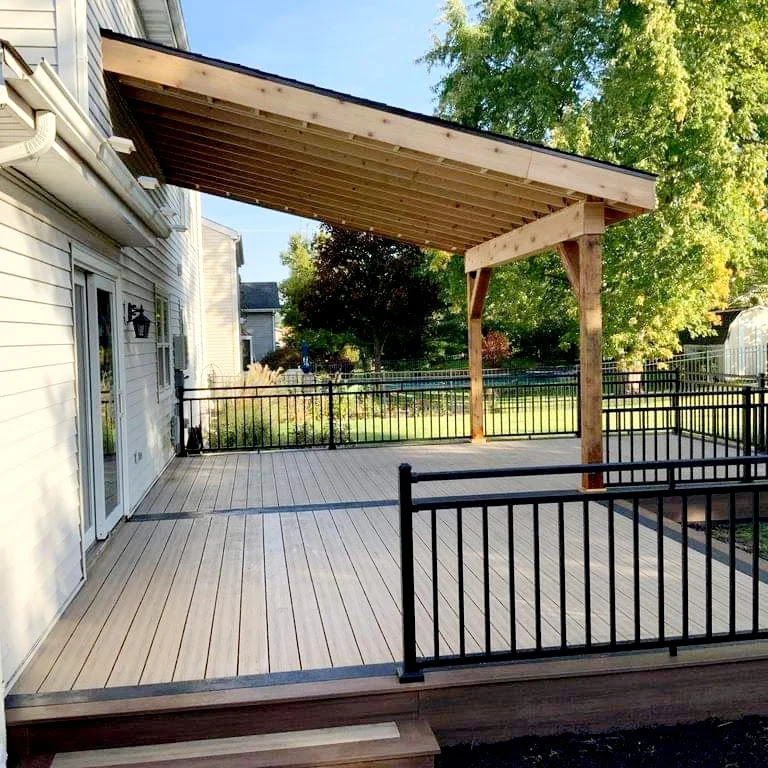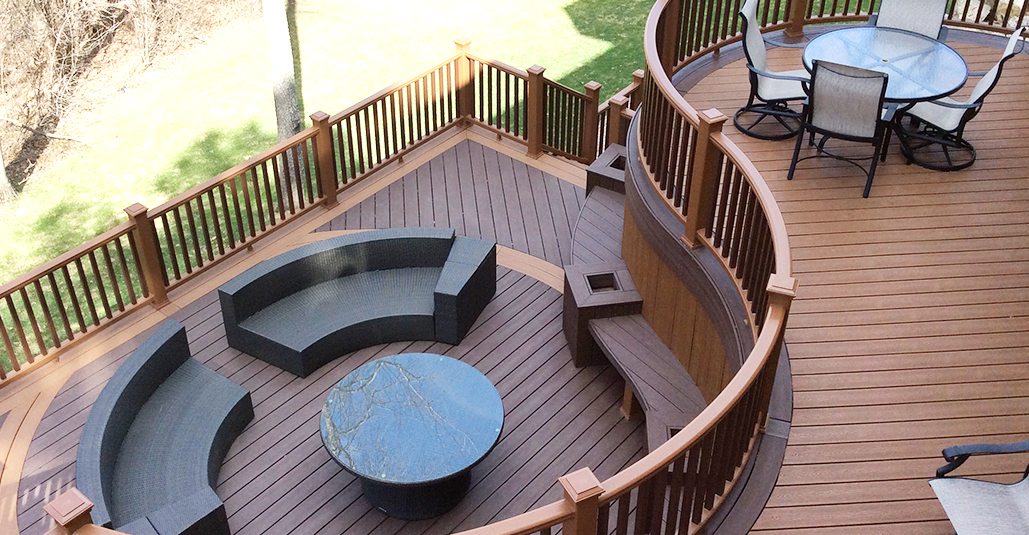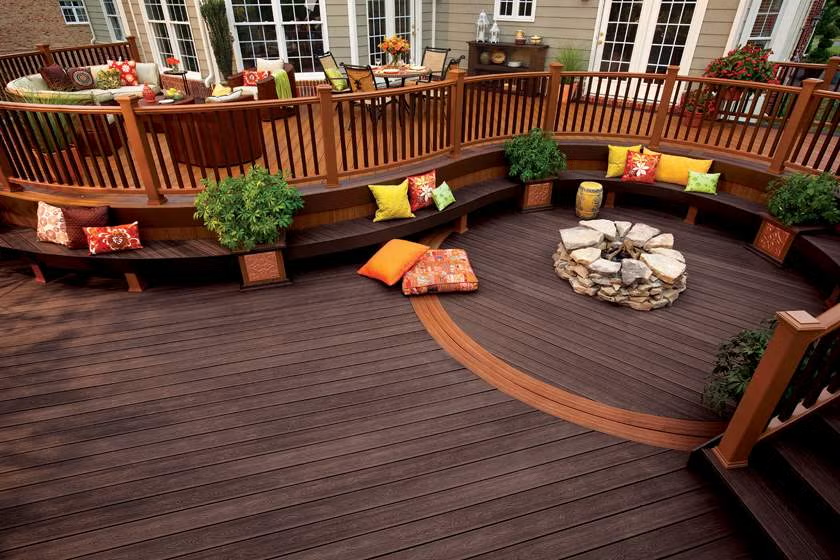The fact that composite decking gets hot in the sun is a common complaint. This was especially true for composite decking from earlier generations. They were uncomfortably hot to walk on.
PVC decking production began as synthetic decking advanced. The major motivation was to create a better decking material than composite that would endure longer while still requiring minimum care. PVC decking, however, has certain significant advantages over composite decking in addition to lengthening the estimated life of the decking.
PVC decking is cooler to the touch and has a less solid core than most composite decking, which helps it retain less heat.
PVC decking is still promoted and sold alongside composite decking despite having been marketed for many years as a new generation of composite decking. So it’s important to understand what we’re talking about when comparing the performance of PVC and composite decking, particularly if PVC decking is cooler than composite.
What is Composite?
Plastics and wood fibers are combined to create composite decking, which is then extruded into decking planks. The decking is strengthened by the organic fibers, which are shielded from moisture by the plastic to prevent decay. The majority of high-quality composite decking boards are additionally covered with a polymer cap, which enhances aesthetics, helps to shield the decking core from moisture, and reduces the formation of mold and mildew.
What is PVC Decking?
PVC stands for polyvinyl chloride, also known as “plastic.” The main distinction between PVC and composite decking is that the core is not a mixture of materials. Without any additional materials, polyvinyl chloride alone makes up the core of PVC decking.
PVC decking features a polymer top to protect the deck’s core material and enhance its appearance, similar to many composite deck boards. This explains why the two types of deck planks are frequently combined. They appear to be quite similar, if not identical.
Comparing the core of the decking, which both have comparable caps, is our main objective. Does the material used to produce composite decking make it hotter than PVC decking’s polyvinyl chloride core?
PVC, Composite, and Wood Decking Will All Become Hot in the Sun
The entire deck will be hot to the touch. The temperature of the decking can be reduced, but it will still feel hot to the touch. This means that your decking will be hot in the sun whether it is made of Wood, PVC or composite.
This primarily has to do with heat and reflection theory. Decking is a flat surface that reflects the sun’s heat more than your yard’s cool grass. Make the decking in your yard the hottest place in the sun.
Azek “Stays Cooler” Decking Boards Are Almost All PVC
This is not a surprise; PVC cooler boards make up the majority of TimberTech and Azek’s decking. The color of your decking has a significant impact on heat. The remaining decking planks are all from their PVC-based Harvest Collection® and Vintage Collection®. a decking material that is cooler than the majority of composite decking.
Compared to several competitive composite materials, it is “up to 30 degrees cooler.”
That’s a significant temperature difference under the summer sun from the deck being too hot to walk on to the deck being comfortable and warm. That is the distinction PVC decking can create.
PVC decking is classified as being cooler than the majority of composite decking, with some exceptions.
The decking gets hotter the darker the color. In the sun, lighter colors are cooler. TimberTech Azek PVC decking fills this need. PVC decking is still cooler while offering a considerably wider range of color options. Lighter colored boards are cooler, nevertheless, even with PVC decking. Although PVC is a cooler material, the color further reduces the temperature.
Each PVC and composite decking manufacturer have a special blend that sets them apart from the competition. Nevertheless, this also means that our comparisons are not apples to apples.
Although being constructed of wood and high-density polyethylene, some composite decking is intended to be cooler like Deckorators Voyage or Moisture Shield Cool Technology.
PVC Decking is Cooler Than Treated Pine or Composite Decking for 3 Reasons:
Density, thermal conductivity, and heat capacity are three characteristics of decking that can be compared.
Comparing the Heat Capacity of Treated Pine, Composite and PVC Decking
With PVC decking, this is an easy win. Simply said, PVC decking cannot withstand as much heat as the others. Even at its highest temperature, composite decking only retains about half as much heat as pine decking and about the same as composite.
Now, it must be said that composite decking contains various components in addition to HDPE, with wood fibers being the most popular. Yet all that does is make the composite decking more heat resistant. making composite decking even hotter to the touch.
In terms of heat capacity, it is what we are comparing. The decks will be hot, but for how long? One advantageous and obvious distinction between composite and PVC decking is this.
A slight modification, such as a passing cloud shadowing the deck, can significantly reduce the temperature of the PVC decking. However, the cooling process for other materials could take hours.
How Quickly Does PVC, Composite or Treated Decking Transfer Heat?
Or, to put it another way, how quickly will you be rushing off the deck once you step out into the sun wearing only your bare feet?
Because this is what you will feel, in some ways it matters more than how hot the material actually gets. No matter how hot the decking is, it doesn’t really matter. How hot it makes you feel is important.
Here, using composite decking when compared to treated wood decking, high-density polyethylene is clearly inferior, burning your feet in half the time. You’ll be dancing off composite decking before you can say “ouch!” when standing on wood.
The differences between PVC and composite decking are comparable. Although PVC decking may heat up more quickly, it will take more time to burn you. In some ways, almost as long as wood decking. PVC decking won’t feel as hot to the touch as composite decking. Which is beneficial if you’re out soaking up the sun.
Comparing the Density of PVC, Composite and Treated Decking Concerning Heat
When evaluating how cool a deck is, decking density is important since how heavy a deck is affecting how much heat it can absorb. In other words, the decking can hold more heat the heavier it is.
If you have ever handled decking, you are aware that composite decking is the heaviest. Which is heavier, PVC or treated decking? That depends on how wet the treated decking is. Even so, PVC decking is usually lightweight.


